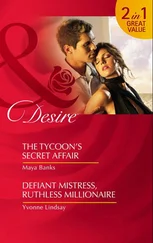“The pope will be staying for lunch, assuming the schedule is maintained. We’re actually a little ahead of time. Did you receive the menu preference?”
A slight nod of the head. “It is as requested.”
Clement did not care for Italian cuisine, a fact the Vatican went to great lengths to keep quiet. The official line was that the pope’s eating habits were a private matter, unrelated to his duties.
“Shall we go inside?” Michener asked.
Lately he’d found himself less inclined to banter on Church politics since he realized that his influence was waning in direct proportion to Clement’s health.
He made his way into the cathedral and the irritating priest followed. Apparently this was his guardian angel for the day.
Clement stood at the intersection of the cathedral’s nave, where a rectangular glass case hung suspended from the ceiling. Inside, illuminated by indirect light, was a pale, biscuit-colored linen about fourteen feet long. Upon it was the faint image of a man, lying flat, his front and back halves joined at the head, as if a corpse had been laid on top then covered from above. He was bearded with shaggy hair past the shoulders, his hands crossed modestly across his loins. Wounds were evident to the head and wrist. The chest was slashed, the back littered with scourge marks.
Whether the image was that of Christ remained solely a matter of faith. Personally, Michener found it difficult to accept that a piece of herringbone cloth could stay intact for two thousand years, and he thought the relic akin to what he’d been reading with great intensity over the past couple of months concerning Marian apparitions. He’d studied the accounts of each supposed seer claiming a visit from heaven. Papal investigators found most to be a mistake, or a hallucination, or the manifestation of psychological problems. Some were simply hoaxes. But there were about two dozen incidents that, try as they might, investigators had been unable to discredit. In the end, no other rationalization was found except an earthly appearance by the Mother of God. Those were the apparitions deemed worthy of assent.
Like Fatima.
But similar to the shroud hanging before him, that assent came down to a matter of faith.
Clement prayed a full ten minutes before the shroud. Michener noted that they were falling behind schedule, but no one dared interrupt. The assembly stood in silence until the pope rose, crossed himself, and followed Cardinal Bartolo into a black marble chapel. The cardinal-prefect seemed anxious to show off the impressive space.
The tour took nearly half an hour, prolonged by Clement’s questions and his insistence upon personally greeting all of the cathedral attendants. The timetable was now being strained, and Michener was relieved when Clement finally led the entourage into an adjacent building for lunch.
The pope stopped short of the dining room and turned to Bartolo. “Is there a place where I might have a moment with my secretary?”
The cardinal quickly located a windowless alcove that apparently served as a dressing chamber. After the door was closed, Clement reached into his cassock and withdrew a powder-blue envelope. Michener recognized the stationery the pope used for private communications. He’d bought the set in a Rome store and presented it to Clement last Christmas.
“This is the letter I wish you to take to Romania. If Father Tibor is incapable or unwilling to do as I have asked, destroy this and return to Rome.”
He accepted the envelope. “I understand, Holy Father.”
“The good Cardinal Bartolo is quite accommodating, isn’t he?” A smile accompanied the pope’s question.
“I doubt he accrued the three hundred indulgences granted for kissing the papal ring.”
It had long been tradition that all who devoutly kissed the pope’s ring would receive a gift of indulgences. Michener often wondered if the medieval popes who created the reward were concerned about forgiving sin or just making sure they were venerated with the appropriate zeal.
Clement chuckled. “I imagine the cardinal needs more than three hundred sins forgiven. He’s one of Valendrea’s closest allies. Bartolo might even replace Valendrea in the Secretariat of State, once the Tuscan secures the papacy. But the thought of that is frightening. Bartolo is barely qualified to be bishop of this cathedral.”
This was apparently going to be a frank conversation, so Michener felt at ease to say, “You’ll need all the friends you can get in the next conclave to ensure that doesn’t happen.”
Clement seemed to instantly understand. “You want that scarlet biretta, don’t you?”
“You know I do.”
The pope motioned to the envelope. “Handle this for me.”
He wondered if his errand to Romania was somehow tied to a cardinal appointment, but quickly dismissed the thought. That was not Jakob Volkner’s way. Nonetheless, the pope had been evasive, and it wasn’t the first time. “You still won’t tell me what troubles you?”
Clement moved toward the vestments. “Believe me, Colin, you don’t want to know.”
“Perhaps I can help.”
“You never did tell me about your conversation with Katerina Lew. How was she after all those years?”
Another change of subject. “We spoke little. And what we did say was strained.”
Clement’s brow curled in curiosity. “Why did you allow that to happen?”
“She’s headstrong. Her opinions of the Church are uncompromising.”
“But who could blame her, Colin. She probably loved you, yet could do nothing about it. Losing to another woman is one thing, but to God . . . that can be hard to accept. Restrained love is not a pleasant matter.”
He again wondered about Clement’s interest in his personal life. “It doesn’t make any difference anymore. She has her life and I have mine.”
“But that doesn’t mean you can’t be friends. Share your lives in words and feelings. Experience the closeness that someone who genuinely cares can provide. Surely the Church doesn’t forbid us that pleasure.”
Loneliness was an occupational hazard for any priest. Michener had been lucky—when he’d faltered with Katerina, he’d had Volkner, who’d listened and granted him absolution. Ironically, that was the same thing Tom Kealy had done, for which he was to be excommunicated. Perhaps that was what drew Clement to Kealy?
The pope stepped to one of the racks and fingered the colorful vestments. “As a child in Bamberg, I served as altar boy. I remember that time fondly. It was after the war and we were rebuilding. Luckily, the cathedral survived. No bombs. I always thought that an appropriate metaphor. Even in the face of all that man can work, our town church survived.”
Michener said nothing. Surely there was a point to all this. Why else would Clement delay everyone for this conversation, which could have waited?
“I loved that cathedral,” Clement said. “It was a part of my youth. I can still hear the choir singing. Truly inspiring. I wish I could be buried there. But that’s not possible, is it? Popes have to lie in St. Peter’s. I wonder who fashioned that rule?”
Clement’s voice was distant. Michener wondered who he was really talking to. He stepped close. “Jakob, tell me what’s wrong.”
Clement released his grip on the cloth and clenched his trembling hands before him. “You’re very naÏve, Colin. You simply do not understand. Nor can you.” He talked through his teeth, hardly moving his mouth. The voice stayed flat, stripped of emotion. “Do you think for one moment we enjoy any measure of privacy? Don’t you understand the depth of Valendrea’s ambition? The Tuscan knows everything we do, everything we say. You want to be a cardinal? To achieve that you must grasp the measure of that responsibility. How can you expect me to elevate you when you fail to see what is so clear?”
Читать дальше












